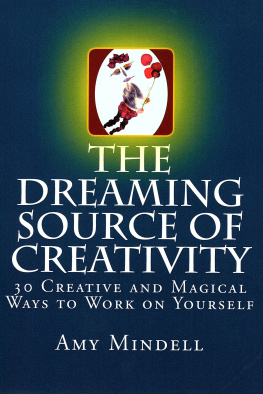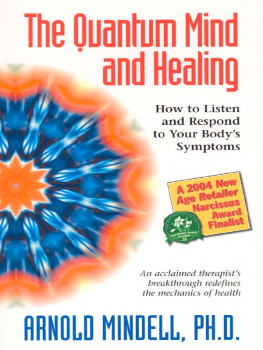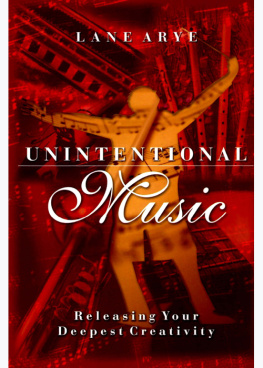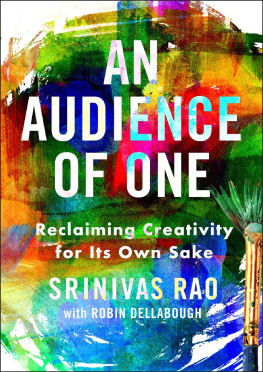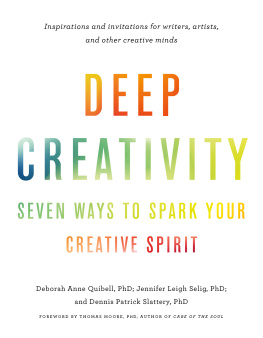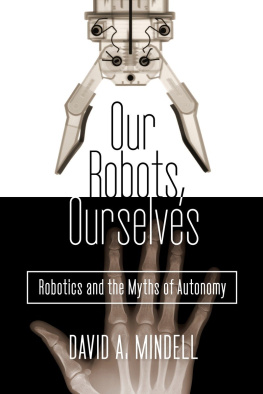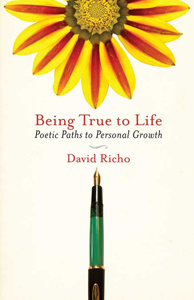
THE DREAMING SOURCE OF CREATIVITY
About the Author
Amy Mindell is a Process Work therapist, workshop facilitator, and author. She is also a singer-songwriter, dancer, and artist. She has developed Process Work in the areas of creativity, coma, movement, and supervision and teaches worldwide with her husband, Arnold Mindell. She thoroughly enjoys researching and teaching classes about the creative process. When she has free time, she loses herself in creating puppets, flower art, animation, and songs.
Other books by Amy Mindell
Coma: A Healing Journey: A Guide for Family, Friends, and Helpers
Alternative to Therapy: A Creative Lecture Series on Process Work
Metaskills: The Spiritual Art of Therapy
Riding the Horse Backwards: Process Work in Theory and Practice (with Arnold Mindell)


Copyright 2005, 2018 Amy Mindell. All rights reserved. No part of this book may be reproduced in any form or by any means, electronic or mechanical, without written permission from the publisher, except for brief quotations for critical articles, reviews, and scholarly works. For information, contact .
CreateSpace Independent Publishing Platform, Portland, Oregon, U.S.A.
First Published by Lao Tse Press 2005
Cover design and Cover art: Amy Mindell
Original Book design: Heiko Spoddeck
Author photo: Susette Payne
Mindell, Amy
The Dreaming Source of Creativity:
30 Creative and Magical Ways to Work on Yourself
Bibliography
Includes index.
ISBN-13: 978-1727847123
ISBN-10: 1727847121
eISBN: 9781642374261
Library of Congress Control Number: 2005929213
Contents



ACKNOWLEDGMENTS

My puppets and I extend our deepest thanks to everyone who has inspired and supported me on my creative path.
I can hardly thank and appreciate Arny, my partner and husband, enough for his boundless support of my creativity. He has always encouraged me to believe in my dreams and even to go way beyond them. He has welcomed my music, crafts, and puppet beings into our home with open arms, has joyously joined me whenever possible in creating all kinds of fun creatures and songs, and has always encouraged me to explore and share my creative inspiration and ideas with others. The way in which Arny follows his own fount of creativity with utter devotion has inspired and touched me in more ways than I can ever express. His development of Process Work, his most recent explorations of the connections between physics and psychology, and his concept of the Intentional Field have formed the very foundation upon which this work is built.
Many thanks to Margaret Ryan, whose wonderful editing and joyful spirit have always helped and inspired me.
Great thanks go to everyone in our seminars who experimented with various aspects of this book as well as to those courageous and fun-spirited folks who participated in my wild and sometimes out-of-control classes! Special thanks go to those people who generously allowed me to use photos of their creations in this book.
I would also love to thank each and every person individually who has contributed to this book directly or indirectly. However, I found that as soon as I started to write each individuals name, the list began to multiply into dozens of names! I realized suddenly that it would be impossible to name each and every one of you. So let me say that I deeply thank my friends and students in Portland, Oregon, and around the world who have taught me a great deal and who have been willing to jump in and experiment with me. I also want to thank my colleagues with whom I have taught classes over the years and who have shared in this creative adventure. I have cherished the enthusiasm, co-creativity, and encouragement that each one of you has given me. I am also greateful to all of the artists, performers, and teachers who have inspired me and who have shown me that the world can be renewed and dreamed again and again.
Finally, I thank the Intentional Field that constantly guides and moves me; the fabric, glue guns, and musical notes that help to bring the unnamable to life; and the playful child in each of us who knows how to grasp and unfold the magical sparks of life.
PROLOGUE
Life as the Canvas
A few years ago my partner Arny and I were in the midst of preparing a seminar we called Stone Songs. The seminar would focus on accessing the vibrations and music in the body as a source of wellness and healing. As preparation for the seminar, I began to read the work of Sufi mystic Hazrat Inayat Khan, The Mysticism ofSound and Music. Khans words spoke to me about the connections between music, the universe, and our lives. I remember being struck powerfully by a particular sentence (though, at the time, I wasnt quite sure why it affected me so strongly) in which he speaks about giving up music:
[emphasis in original]
Going Back in Time
Before going further, allow me to drift back in time for a moment. During my childhood and adolescence, I was involved in many creative activities, ranging from playing piano and guitar to singing and making crafts, from dance training to painting, from cooking to writing poetry. Later on, as a process-oriented therapist and teacher, my creativity bloomed in the form of my private work with clients and the classes that I taught (and continue to teach) alone and together with Arny. The wide ranging applications of Process Work afforded me a new kind of freedom from which I could bring many of my creative interests to bear. Any one session might include an ensemble of methodsfrom movement to art-work, deep bodywork to relationship work, social-change work to dialogue with toys and puppets.
The foundation of Process Work springs from the ancient Taoist beliefs in the wisdom and continual unfolding of nature. In Essence, Process Work focuses on what nature is presenting in any given situation. As practitioners we seek to follow and adjust to that flow in our work with individuals, couples, and groups. During the last ten years I have written books and articles about Process Work themes. I found writing to be a particularly challenging task as I struggled to discover this new form of creativity in terms of using words to express process-oriented ideas.
Losing My Voice
Around my fortieth birthday I started to have trouble using my voice. My throat was often sore and I was frequently hoarse. This was quite difficult for me because we often lectured, and I spoke most of the day with my clients. It was also becoming difficult for me to singa limitation I took very hard because I had always adored singing. I had learned to play guitar and piano as a child just so that I could sing the most passionate songs of my favorite songwriters. Singing always felt like home for me, a place to transcend everyday life, to connect with my deepest feelings, and to reach for something much greater than myself. When I read Inyat Khans words about sacrificing the dearest thing to him, his music, they moved me deeply.
Next page
